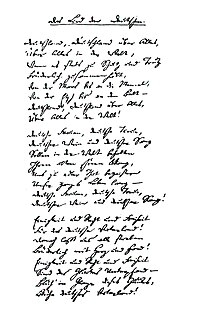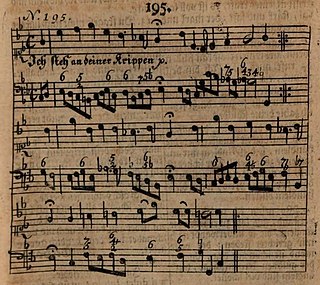Related Research Articles

The "Deutschlandlied", officially titled "Das Lied der Deutschen", or part of it, has been the national anthem of Germany since 1922. In East Germany, the national anthem was "Auferstanden aus Ruinen" between 1949 and 1990.

"Auferstanden aus Ruinen" is a German patriotic song that was the national anthem of East Germany during its existence from 1949 to 1990.

The national anthem of Austria, also known by its incipit "Land der Berge, Land am Strome", was adopted in 1946. The melody, originally attributed to Wolfgang Amadeus Mozart but now disputed among various composers, was matched with a text by Paula von Preradović the following year.

Reinhard Friedrich Michael Mey is a German "Liedermacher". In France he is known as Frédérik Mey.
Nazi songs are songs and marches created by the Nazi Party. In modern Germany, the public singing or performing of songs exclusively associated with the Nazi Party is now illegal.

A drinking song is a song sung while drinking alcohol. Most drinking songs are folk songs or commercium songs, and may be varied from person to person and region to region, in both the lyrics and in the music.

Fritz Löhner-Beda, born Bedřich Löwy, was an Austrian librettist, lyricist and writer. Once nearly forgotten, many of his songs and tunes remain popular today. He was murdered in Auschwitz III Monowitz concentration camp.

Katja Ebstein is a German singer. She was born in Girlachsdorf. She achieved success with songs such as "Theater" and "Es war einmal ein Jäger". She was married to Christian Bruhn, who wrote many of her songs.

"Rufst du, mein Vaterland" is the former national anthem of Switzerland. It had the status of de facto national anthem from the formation of Switzerland as a federal state in the 1840s, until 1961, when it was replaced by the Swiss Psalm.

The Symphony No. 8 "Lieder der Vergänglichkeit" by Krzysztof Penderecki is a choral symphony in twelve relatively short movements set to 19th and early 20th-century German poems. The work was completed and premiered in 2005. The symphony has an approximate duration of 35 minutes. Penderecki revised the symphony in 2007 by adding a few more poem settings and the piece has expanded to around 50 minutes. Although given the designation Symphony No. 8, it was not actually the final symphony Penderecki completed before his death in March 2020; the Sixth Symphony, begun in 2008, was not completed until 2017.

Josias, Hereditary Prince of Waldeck and Pyrmont was the heir apparent to the throne of the Principality of Waldeck and Pyrmont and a general in the SS. From 1946 until his death, he was the head of the Princely House of Waldeck and Pyrmont. After World War II, he was sentenced to life in prison at the Buchenwald Trial for his part in the "common plan" to violate the Laws and Usages of War in connection with prisoners of war held at Buchenwald concentration camp, but was released after serving about three years in prison.
Andrea Elisabeth Maria Jürgens was a German schlager singer. She became famous as a child star in the late 1970s when she had her first hit with "Und dabei liebe ich euch beide" at age 10. She had been active in the music business ever since with more than 60 single releases.
Franz Schubert's best-known music for the theatre is his incidental music for Rosamunde. Less successful were his many Opera and Singspiel projects. On the other hand, some of his most popular Lieder, like "Gretchen am Spinnrade," were based on texts written for the theatre.

"Nun freut euch, lieben Christen g'mein" is a Lutheran hymn, written in 1523 by Martin Luther. One of his early hymns, it was published as one of eight songs in 1524 in the first Lutheran hymnal, the Achtliederbuch, which contained four songs by Luther, three by Speratus, and one by Justus Jonas. It appeared also in 1524 in the Erfurt Enchiridion.
"Herzlich tut mich verlangen" is a German hymn, with lyrics written in 1599 by Christoph Knoll, with a melody adapted from a secular song by Hans Leo Hassler. It is a prayer for a blessed death, beginning "Herzlich tut mich verlangen nach einem sel'gen End". Its hymn tune, Zahn No. 5385a, was later also used for Paul Gerhardt's "Befiehl du deine Wege" and "O Haupt voll Blut und Wunden".

"Die beste Zeit im Jahr ist mein" is a hymn by the Protestant reformer Martin Luther. He wrote it not as a hymn but as part of a longer poem which appeared first in 1538. In the current Protestant German hymnal Evangelisches Gesangbuch, it is EG 319.

"Ich steh an deiner Krippen hier" is a German Christmas hymn, with lyrics by Paul Gerhardt which were first published in 1653. It was then sung with an older melody by Martin Luther, but a melody which was likely created by Johann Sebastian Bach for Schemellis Gesangbuch of 1736 is now part of current Protestant and Catholic hymnals.
"Freuet euch der schönen Erde" is a Lutheran hymn in German with a text by Philipp Spitta in 1827. In the hymnal Evangelisches Gesangbuch, it appears as EG 510, with a 1928 melody by Frieda Fronmüller.

"Mit Ernst, o Menschenkinder" is an Advent hymn by Valentin Thilo. It partly paraphrases the call to penitence by John the Baptist. The text was first published in 1642 in the collection Preußische Festlieder. The different melody that later became popular dates back to 1557.
"Lobpreiset all zu dieser Zeit" is a Christian hymn in German for a new year with text by Heinrich Bone written in 1851. It is contained in the Catholic hymnal Gotteslob. It is sung to a melody that Martin Luther created in 1529.
References
- ↑ Otto Boehm: Die Volkshymnen aller Staaten des deutschen Reiches. Beiträge zu einer Geschichte über ihre Entstehung und Verbreitung, Wismar, 1901, quoted in Friedhelm Brusniak: „Unter dieser Eiche lasst euch nieder.“ Ein „Kunstlied im Volksmund“ aus Waldeck, Jahrbuch für Volksliedforschung, 43. (1998), p. 32.
- ↑ Magistrate of the City of Diemelstadt (ed.): 850 Jahre Wrexen: 1141 – 1991, Marsberg: Schulte, 1991. ISBN 3-9802152-7-X
- ↑ "(Germany - former state) Waldeck and Pyrmont". National Anthem Downloads, Lyrics, and Information. November 11, 2004. Retrieved March 29, 2020.
Slightly modified English lyrics